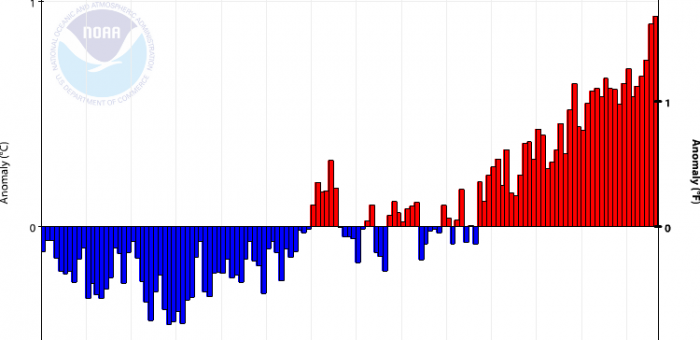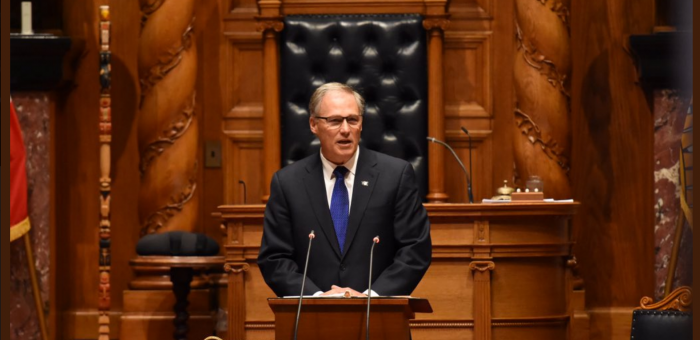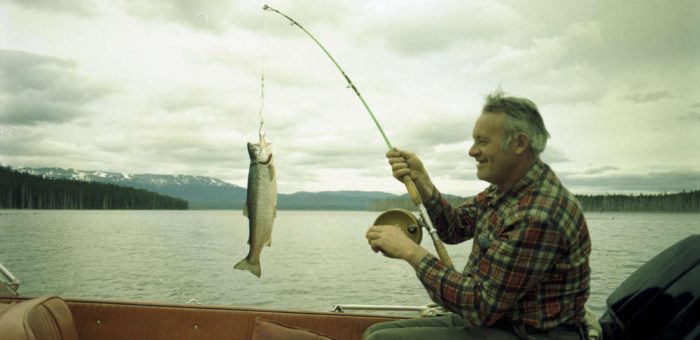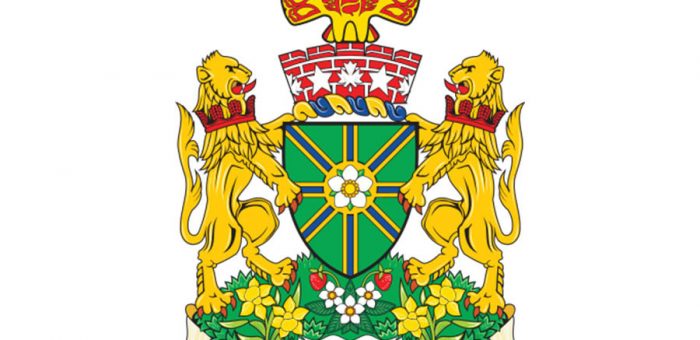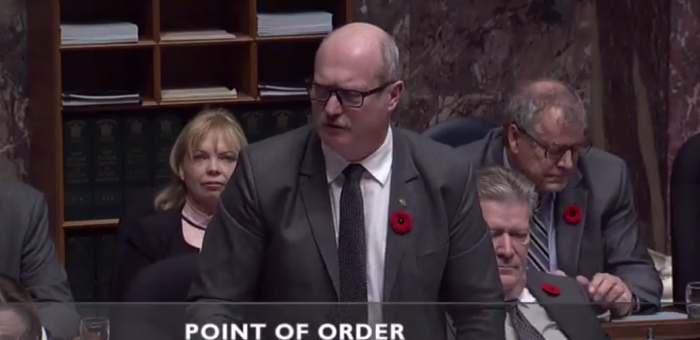Uncategorized
Bringing the warning from the world’s scientists to the BC Legislature
On November 13, 2017 a second world scientists’ warning to humanity was published in Oxford University Press’s prestigious journal Bioscience. Signed by 15,364 scientists from 184 countries, this warning concluded:
“To prevent widespread misery and catastrophic biodiversity loss, humanity must practice a more environmentally sustainable alternative to business as usual. Soon it will be too late to shift our course away from our failing trajectory, and time is running out. We must recognize in our day-to-day lives and in our governing institutions that earth, with all its life, is our only home.”
This message came 25 years after a similar message was delivered by 1,575 pre-eminent scientists in 1992.
What’s remarkable is that the support for the second warning continues to grow and it has strong support from the British Columbia scientific community. For example, of the 15,364 initial signatories, 40 were from the University of Victoria and 61 from the University of British Columbia. 554 scientists from Canada signed the initial warning and this number has grown to 994 since the letter was published.
Anyone who has watched the documentary Running on Climate knows that I take the warning very seriously. It was the reason that I ran with the BC Greens in 2013.
Today in the legislature I rose during Members’ Statements to bring the message of these scientists directly to the BC Legislature.
Below I reproduce the video and text of my delivery. I also append the accompanying media release.
Video of Statement
Text of Statement
A. Weaver: In 1992, Dr. Henry Kendall, a Nobel laureate in physics, organized a statement signed by 1,575 pre-eminent scientists that was sent to government leaders of all nations. The statement warned:
“Human beings in the natural world are on a collision course. Human activities inflict harsh and often irreversible damage on the environment and on critical resources. If not checked, many of our current practices put at serious risk the future that we may wish for human society and the plant and the animal kingdoms and may so alter the living world that it will be unable to sustain life in the manner that we know. Fundamental changes are urgent if we are to avoid the collision our present course will bring about.“
Twenty-five years later, a second warning, now signed by 15,364 scientists from 184 countries was issued. Published last week in Oxford University Press’s prestigious journal Bioscience, this warning concluded:
“To prevent widespread misery and catastrophic biodiversity loss, humanity must practice a more environmentally sustainable alternative to business as usual. Soon it will be too late to shift our course away from our failing trajectory, and time is running out. We must recognize in our day-to-day lives and in our governing institutions that earth, with all its life, is our only home.”
The warning quantitatively analyzed the nine environmental issues identified in 1992, and they show that in all cases but one, conditions have actually gotten worse and, in most cases, dramatically so.
Yet that one success story offers us so much hope. In 1987, the Montreal protocol was finalized. All 197 countries in the UN have ratified this protocol, and it has led to a dramatic reduction in substances that deplete the ozone layer. And 170 of these 197 countries have already ratified the Paris climate agreement, which formed the basis of discussions earlier this month at the 23rd Conference of the Parties to the UN framework convention on climate change.
Let us collectively reflect upon the warnings of the world’s scientists, as well as the words of the Gov. Jay Inslee, who addressed the Legislature yesterday. In reference to tackling climate change, he noted:
“This is one of the greatest challenges of our time. If we are remembered for anything 100 years from now, this is what we will be judged on. It is time for us rise to that challenge.“
Media Release
Weaver delivers warning from 15,364 scientists to the B.C. Legislature
For immediate release
November 22, 2017
VICTORIA, B.C. – Andrew Weaver, leader of the B.C. Green Party, read a warning from a letter signed by from 15,364 scientists in 184 countries to the B.C. Legislature. The Letter, published last week by the Alliance of World Scientists and entitled “World Scientists’ Warning to Humanity: a second notice,” warns world leaders that there needs to be change in order to save the earth.
“As leaders, we have a responsibility to younger generations to ensure that our actions today do not leave them worse off than we are,” said Weaver.
“I am proud to deliver this message to the B.C. legislature so that we may be reminded of this responsibility and take urgent action to address climate change. B.C. has a history of leadership in climate action. I am proud that our Agreement with the B.C. NDP has once again moved us in this direction, but there remains much work to be done.
“B.C. has a highly educated workforce, abundant natural resources and is one of the most beautiful places in the world to live. If we have the courage to champion a bold vision, we can ensure that B.C. is a leader not only in climate action, but also in the low-carbon economy that is emerging as world leaders step up to reduce emissions.”
The letter states that in order “to prevent widespread misery and catastrophic biodiversity loss, humanity must practice a more environmentally sustainable alternative to business as usual…Soon it will be too late to shift course away from our failing trajectory, and time is running out.”
The warning comes 25 years after Dr. Henry Kendall, a Nobel Laureate and former Chairperson of the Union of Concerned Scientists, organized a similar statement signed by 1,500 scientists in 1992.
Weaver is a renowned climate scientist who prior to his election in 2013 served as Canada Research Chair in climate modelling and analysis in the School of Earth and Ocean Sciences at the University of Victoria. He was a Lead Author on the 2nd, 3rd, 4th and 5th Intergovernmental Panel on Climate Change’s scientific assessments and has authored or coauthored over 200 peer-reviewed, scientific papers and was the Chief Editor of the Journal of Climate from 2005-2009.
-30-
Media contact
Jillian Oliver, Press Secretary
+1 778-650-0597 | jillian.oliver@leg.bc.ca
Washington Governor Jay Inslee addresses the BC Legislature
Washington State Governor Jay Inslee addressed the BC Legislature today. He offered an inspirational message of how Washington is positioning itself as a leader in the emerging 21st century economy, while at the same time taking steps to aggressively reduce greenhouse gas emissions. As leader of the third party, I was entitled to deliver a brief response.
Below I reproduce the text and video of my response. I also include the video of the Governor’s speech, followed by the videos of the responses by the Premier and the Leader of the Official Opposition.
Text of my response
A. Weaver: Thank you, Governor Inslee. We’re honoured to have you address the B.C. Legislature today.
My colleagues in the B.C. Green Party and I greatly appreciate your thoughtful words and, in particular, we greatly appreciate your continued climate leadership south of the border.
You know, we know how challenging and, frankly, at times frustrating it can be to work on this issue amongst those vested in the status quo, unable to recognize the economic opportunities that are presenting themselves. We commend your leadership and your perseverance on this file.
Our jurisdictions share a wealth of renewable natural resources that position us uniquely qualified to rise to the challenges climate change will bring. And we possess, as you note, the natural beauty that allows us to attract the best and brightest in the world, by offering them the greatest place in the world to live.
As governor, you’ve recognized this. By already working to attract and expand carbon fibre manufacturing at Moses Lake in rural Washington, by bringing this energy intensive manufacturing facility for BMW’s i-series electric vehicles close to the production of cheap renewable energy, Washington is capitalizing on the emerging 21st century economy. And what’s more, at the same time, you’re reducing transmission line energy loss.
Your government is illustrating that acting on climate change drives innovation, jobs and prosperity for all. With an economy that grew 2½ times the national rate last year, Washington was named the number one place in America to do business in 2017.
This was achieved while simultaneously demonstrating international leadership on the biggest challenge facing humanity.
I hope your demonstrated success reassures British Columbians, as we make bold choices of our own in the years ahead. Not only is it possible for governments to drastically reduce carbon emissions, but doing so spawns innovation, economic growth and job creation.
Finally, when reviewing your book, Apollo’s Fire: Igniting America’s Clean Energy Economy, I was reminded of president John F. Kennedy’s quote that I often use when talking about climate change.
In 1962, when President Kennedy announced that America would send a man to the moon by the end of the decade, he said this: “We must be bold.” He further said:
“We choose to go to the moon in this decade, not because it’s easy, but because it’s hard, because that goal will serve to organize and measure the best of our energies and skills, because the challenge is one that we are willing to accept, one we are unwilling to postpone, and one we intend to win.“
The time to be bold is upon us.
With that, I thank you for giving us so much to aspire to.
Governor Inslee’s address and my response
Response of Premier and Leader of Official Opposition
Reintroducing Right to Roam Legislation in British Columbia
Today in the legislature I reintroduced the Right to Roam Act, a private members bill that I first introduced on February 27, 2017.
This bill was drafted in response to a number of conflicts in which people trying to hike or walk to rivers and lakes in the backcountry were met with new fences, gates, and threatened with arrest. When leased crown land or uncultivated private lands are blocking British Columbian’s ability to reach public lands and waterways, what are their rights in accessing those spaces?
The bill is a combination of B.C.’s existing Hunting and Fishing Heritage Act and Nova Scotia’s Angling Act and seeks to protect and clarify British Columbian’s right to access to crown and cross uncultivated wild lands. It does not increase access for any motorized vehicles, as this would be pose a significant risk to the landscape, wildlife populations, and historic First Nations sites. It does not amend any wildlife legislation or hunting regulations, nor does it limit the rights of property owners.
After its initial introduction, my office has received an endless stream of emails and phone calls from British Columbians who are struggling with this issue in their communities.
It’s clear that this right to access wilderness, especially on leased Crown land, is a debate that we need to have in British Columbia and that is precisely the reason why I felt it was important to reintroduce the bill. While I recognize that the government will unlikely call this bill for second reading, and while I also recognize that there are important amendments that would make it more effective, it’s critical that we keep this issue in the public realm.
I encourage all readers to contact their local MLA to emphasize the importance of bringing Right to Roam legislation to British Columbia.
Below I reproduce the video and text of the Bill’s introduction as well as the accompanying media release.
Video of Introduction
Text of Introduction
A. Weaver: I move that a bill intituled the Right to Roam Act, 2017 of which notice has been given in my name on the order paper be introduced and now read a first time.
The ability to access and experience nature is a right for all British Columbians, and we must protect it. Spending time outside is vital to our well-being, as well as the protection of our environment. The more time people spend in their local ecosystem, the more they will care about protecting it.
Increasingly, however, British Columbians are finding themselves fenced out of wild areas that have been enjoyed by the public for generations. Fences, gates and signs are blocking people from accessing Crown land.
Since the introduction of this bill for the first time last year, my office has literally received an endless stream of hundreds upon hundreds of emails and phone calls from British Columbians who are struggling with this issue in their communities.
It’s clear that this right to access wilderness, especially on leased Crown land, is a debate that we need to have in British Columbia.
At the recent UBCM conference, I also had delegations come to meet with me on this very topic, as well as local organizations and First Nations across British Columbia. It’s a pressing issue that’s effecting British Columbians from north to south to east to west.
This bill, which is built on a combination of B.C.’s existing Hunting and Fishing Heritage Act and Nova Scotia’s Angling Act would re-establish the rights of British Columbians to access public lands, rivers, streams and lakes and to use these spaces to fish, hike and enjoy outdoor recreation in accordance with the law.
Mr. Speaker: You have heard the question.
Motion approved.
A. Weaver: I move that the bill be placed on the orders of the day for second reading at the next sitting of the House after today.
Bill M209, Right to Roam Act, 2017, introduced, read a first time and ordered to be placed on orders of the day for second reading at the next sitting of the House after today.
Media Release
Weaver re-introduces bill to increase British Columbian’s access to nature
For immediate release
November 8, 2017
VICTORIA, B.C. – Andrew Weaver, leader of the B.C. Green Party, introduced a Private Member’s Bill that would increase the ability of British Columbians to access public lands. Weaver first introduced the bill, the Right to Roam Act, 2017, in February 2017 under the previous B.C. Liberal government.
“The ability to access and experience nature is a right for all British Columbians, and we must protect it,” said Weaver.
“Spending time outside is vital to our wellbeing, as well as the protection of our environment. The more time people spend in their local ecosystem, the more they will care about protecting it.
“Increasingly, however, British Columbians are finding themselves fenced out of wild areas that have been enjoyed by the public for generations. Fences, gates and signs are blocking people from accessing crown land.
“Since the introduction of this bill for the first time last year, my office has received an endless stream of emails and phone calls from British Columbians who are struggling with this issue in their communities. It is clear that the right to access wilderness, especially on leased crown land, is a debate we need to have in B.C.”
This Bill, which is built on a combination of B.C.’s existing Hunting and Fishing Heritage Act and Nova Scotia’s Angling Act, would re-establish the rights of British Columbians to access public lands, rivers, streams, and lakes, and to use these spaces to fish, hike and enjoy outdoor recreation in accordance with the law.”
-30-
Media contact
Jillian Oliver, Press Secretary
+1 778-650-0597 | jillian.oliver@leg.bc.ca
Mourning the loss of Constable John Davidson
In the legislature today Mike Farnworth, the government house leader, rose to deliver a Ministerial Statement on the tragic loss of Constable John Davidson. Constable Davidson was killed in the line of duty yesterday in Abbotsford. As Leader of the Third Party in the Legislature, I rose to respond.
Below I reproduce the video and text.
Video
Text
A. Weaver: I rise to join the Government House Leader and the Leader of the Official Opposition in expressing our most sincere condolences to the loved ones of Const. John Davidson, the police officer who tragically lost his life yesterday.
We stand with the community of Abbotsford while they mourn his terrible loss.
Police officers put their lives on the line every day to keep our communities safe. We must never forget the risks our police officers and first responders face, nor the sacrifices they are called on to make in the line of duty.
Police officers are the heroes of our communities. They work tirelessly every day to respond to multiple crises and emergencies that, many times, each constitute the worst days of a citizen’s life. We can honour them by ensuring that they have the support they need to do their vital work in keeping us safe.
As we remember the bravery, honour and dedication of our first responders, we remember what makes this country great — our generosity, strong sense of community and willingness to look out for one another. Let us all strive to do all we can to support our communities so that they can be safe for our families and for all citizens of this province.
Liberal MLA berates Speaker for not allowing insults!
In what can only be described as one of the most bizarre moments I’ve experienced since getting elected in 2013, today I witnessed Mike de Jong, the MLA for Abbotsford West, once more challenging the Speaker for ruling certain language unparliamentary.
In Question Period, Jas Johal (MLA for Richmond Queensborough) referred to the Minister of Transportation as the Minister of Consultation Paralysis. The Speaker asked him to rephrase this and Mr. de Jong apparently felt that the Speaker’s ruling was inappropriate.
My colleague Sonia Furstenau rose to support the Speaker’s ruling. Please view the video exchange below and determine who has the most compelling argument. I think it should be obvious.
What’s remarkable about this is that it’s the second time that the MLA for Abbotsford West has openly challenged the Speaker.
On October 25, after Peter Milobar, the MLA for Kamloops North Thompson referred to the Agriculture Minister (Lana Popham) as the Minister of Intimidation. The Speaker asked him to withdraw the insult. Mike de Jong rose to Peter Milobar’s defense (see video below).

